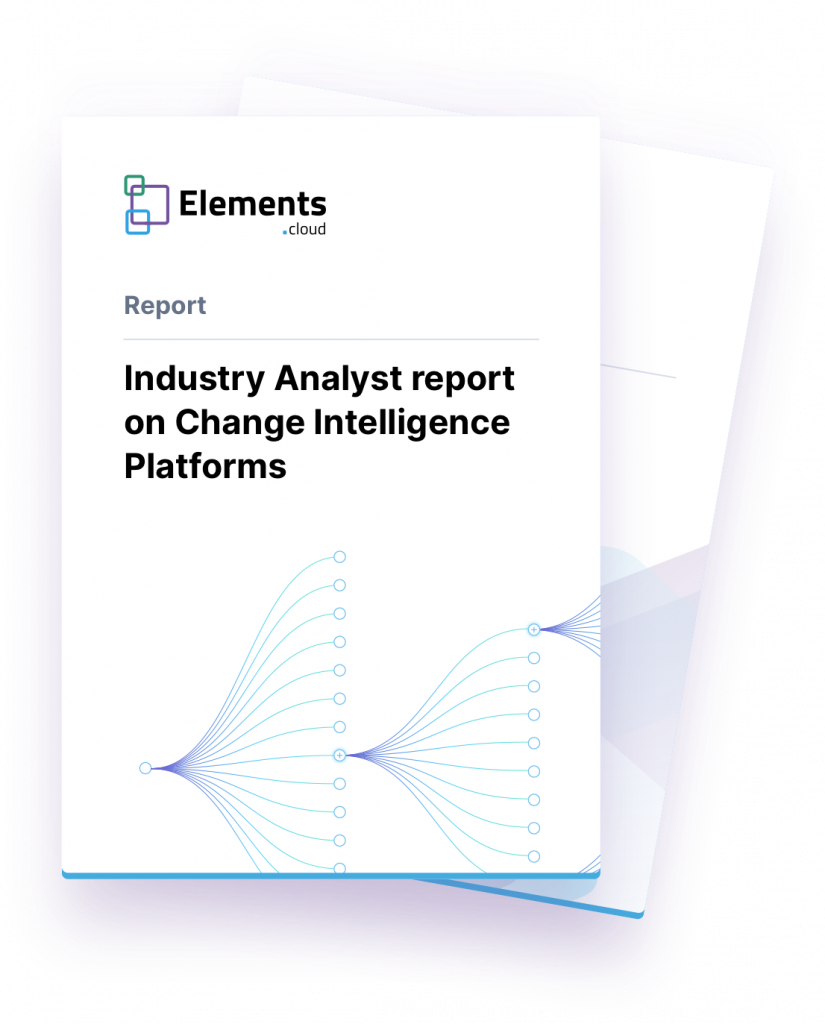Partners
Integrations
We recognize that the Change Intelligence Platform is not an island. It relies on integration partners.
We are investing heavily in R&D to deepen the current integrations and make it easier for 3rd parties to develop integrations through our APIs and Webhooks.

Salesforce Einstein1 Platform
Elements uses the Salesforce APIs and our Managed Package, that is on the AppExchange, to sync, analyze and document the metadata. Our Managed Package also supports the DevOps Center integration and provides UI components so that processes can be displayed inside page layouts.
Salesforce Data Cloud
Elements build a metadata dictionary with all the metadata, dependencies, and automated documentation from the Einstein1 platform. We’re extending it to include all the Data Cloud metadata. This means that all the Data Cloud dependencies can be displayed in the Dependency Tree and Dependency Grids.
Salesforce DevOps Center
Elements was the launch partner. The deep integration with DevOps Center provides a sync with Jira, impact analysis for conflict checking, and the ability to link work items.
Salesforce Einstein Trust Layer
When this AI Gateway is available, ElementsGPT will use it to provide results, rather than our direct connection to the OpenAI Foundational Model.

Atlassian Jira
User stories are kept in sync after they’ve been created in Elements or Jira. Using the Google Chrome Extension, the right panel popup in Jira shows documentation and impact analysis.

AWS
Elements is hosted by AWS, meaning that it can support the change for any app – not just Salesforce. Through the AWS partnership Elements is on the pilot program for Bedrock, the AWS AI Gateway,

Copado
The Elements user story is synchronized between Jira and Copado. In addition, Elements surfaces the business analysis and metadata impact analysis in the right panel popup inside Copado using the Google Chrome Extension.

A Chrome Extension enables Elements analysis and insights to be visible through a popup right panel in Salesforce, Copado and Jira.

Open AI
ElementsGPT currently uses an integration with OpenAI to provide the AI results. But the integration has been architected so that any AI Foundational Model or Gateway e.g. Einstein Trust Layer or AWS Bedrock can be used

Industry analyst report
Elements is a front runner
Salesforce industry analysts InVisory help companies evaluate and select the best apps in the Salesforce ecosystem. Their recent vendor report rates Elements as the front runner in Change Intelligence Platforms and the most complete Salesforce solution for managing change.

Frequently asked questions
Can a 3rd party build an integration to Elements.cloud?
Yes. We have Public APIs and Webhooks so that anyone can build an integration. To read our developer documentation go to developer.elements.cloud where you will find all our developer-friendly resources to help you get started with the Elements API. At a more basic level, you can use CSV files to import data.
How is metadata from other apps used to build a metadata dictionary?
Elements is architected so that any app metadata can be sync’s and documented in a metadata dictionary. Here is the support article. Anyone could build a more sophisticated sync to a 3rd party app like ServiceNow, Veeva, Workday or a custom app.
What data is stored in AWS?
We do not store customer data. We store business analysis and metadata configuration data. This is set out in our Data Security Compliance Statement that can be downloaded here.
Can I trial Elements?
Yes. Talk to us.


